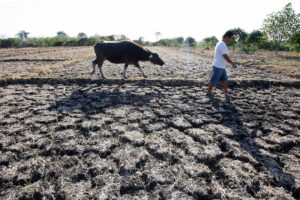EXTREME HEAT is emerging as a major climate risk across the Asia-Pacific region, disrupting schools, agriculture, and urban communities, the United Nations (UN) said in a report.
The Asia-Pacific Disaster Report 2025, published by the UN Economic and Social Commission for Asia and the Pacific (ESCAP), warned that rising temperatures are increasing the frequency and severity of climate-related hazards across the region.
“Disaster risks are expanding and intensifying as temperatures rise, with serious consequences not only for human health but also for socioeconomic-environmental systems. (This) can range from extensive floods to intense storms, to prolonged drought,” the report said.
Urban centers such as Metro Manila are particularly vulnerable. According to the study, densely built cities are projected to become significantly hotter, with the urban heat island effect adding 2°C to 7°C to already rising temperatures.
Vulnerable communities, including children, older persons and outdoor low-wage earners in densely populated areas, face the greatest risks.
In the Philippines, March and April 2025 were the hottest on record, with extreme temperatures disrupting fisheries and agriculture in 26 areas, according to ESCAP.
The report also found heat stress to be increasingly undermining educational equity and learning outcomes, particularly for children in under-resourced communities.
Many schools across South, Southeast and East Asia lack adequate passive or active cooling, leaving classrooms unsafe and ineffective during heatwaves. In the Philippines, class suspensions affected over 3.6 million students when heat indices exceeded 50°C in 2024.
According to the ESCAP report, the ability of students to concentrate and process information declines during extreme heat.
“Evidence from cognitive and physiological studies reveals that elevated brain and core temperatures reduce working memory, decision-making speed and executive control, with these effects manifesting more acutely under the hot and humid conditions that prevail across Asia,” the report said.
Apart from the direct effects of extreme temperatures, ESCAP said sea level rise due to global warming is also increasing the number of severe storms and compounding the region’s vulnerability to climate hazards.
Citing data from the World Meteorological Organization, the report said between September and November 2024, the Philippines experienced an unusually active cyclone season, more than double the seasonal norm, causing approximately $430 million in damage.
Across the Asia-Pacific region, ESCAP projected that annual disaster losses could rise from $418 billion to $498 billion by 2100 without stronger adaptation measures.
ESCAP is urging governments to integrate heat into disaster planning, expand early warning systems, and protect vulnerable communities.
“Governments should create detailed maps combining vulnerability and heat hotspot data to identify at-risk populations and areas, and the projected duration of heat wave events to enable proactive and informed decision-making,” it said.
The UN agency said it is planning three new regional initiatives: scaling up climate-resilient and inclusive social protection schemes; establishing cross-border green cooling corridors; and using innovative space-based solutions to strengthen heat preparedness and early warning systems. — Vonn Andrei E. Villamiel

